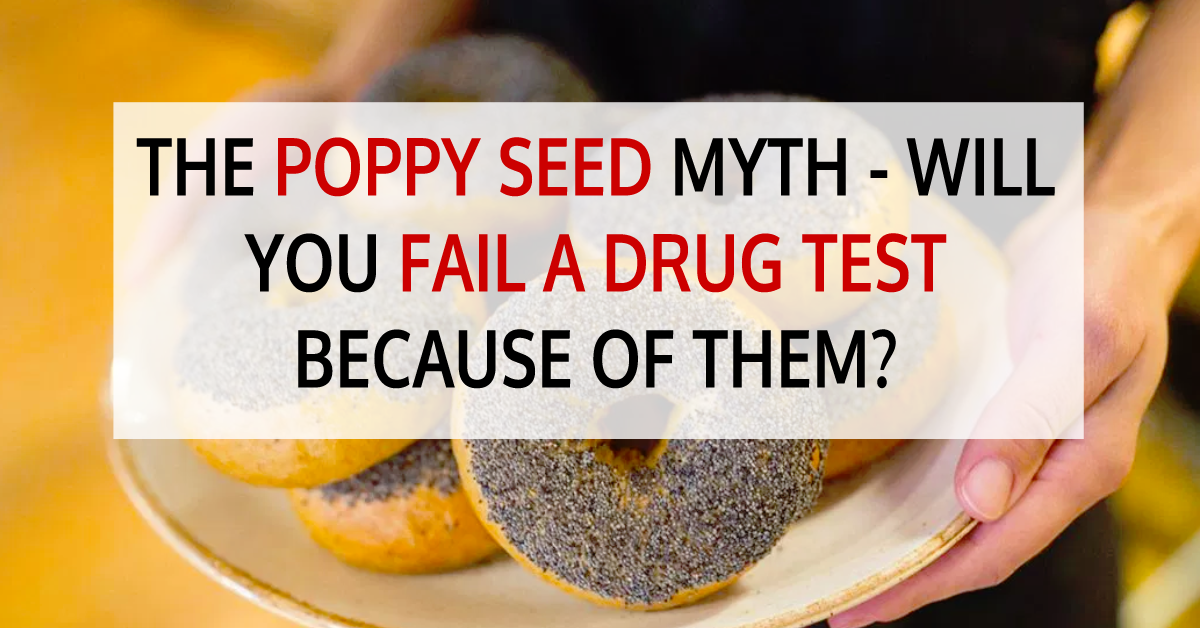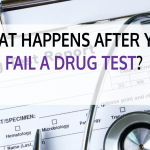
For generations, poppy seeds have been a basic component in a variety of popular recipes ranging from baked products to salads and sauces. Recent research and real-life examples have shown a startling reality about the apparently harmless small seeds: they may lead a person to fail a drug test.
This essay will go into depth on the issue, from the science to the practical implications and what people may do to protect themselves. The goal of this page is to educate and enlighten the public about this problem, as well as to raise awareness about the need for reform in how drug tests are performed and interpreted.
What are Poppy Seeds?
Opium poppies produce tiny, ovoid seeds known as poppy seeds. They are a popular ingredient in a wide variety of dishes thanks to their firm exterior and creamy, nutty flavor.
Clarification and Meaning
Poppy seeds are the dried, hulled, and roasted seeds of the opium poppy (Papaver somniferum). They’re only about 1.5 mm in length, but they’re very firm and crunchy. These are harvested from mature opium poppies when the seeds are ready to be used.
Backstory and Origins
Native to the Mediterranean, the opium poppy plant has been cultivated for thousands of years for both medicinal and edible purposes. The seeds have been used as a food source for nearly as long, with evidence dating all the way back to ancient civilizations like the Egyptians and the Greeks. Poppy seeds are a staple ingredient in many cuisines and are now cultivated and harvested all over the world.
Common Uses in the Food and Drug Industries
A wide range of baked goods, from breads and cakes to pastries, benefit from the addition of poppy seeds. They are also a common ingredient in savory salads, sauces, and rice dishes. Additionally to their culinary use, poppy seeds have been used in traditional medicine for their analgesic and calming effects.
They’re also the raw material for making opium, a powerful painkiller that’s been around for thousands of years and used to treat everything from toothaches to cancer. However, it is important to note that opium use is prohibited or severely restricted in many countries.
Poppy Seeds Contain Opiates
Poppy seeds come from the opium poppy plant, which also produces morphine and heroin. While the seeds do not contain enough of these compounds to be psychoactive, they may contain residues of opium alkaloids that may be identified in a drug test.
Opiate Presence in Poppy Seeds
Poppy seeds have long been known to contain opium alkaloids. These alkaloids are the same molecules present in opium, morphine, and heroin, and they are responsible for the drugs’ potent pain-relieving and sedative effects. The amounts of these alkaloids in poppy seeds, however, are far lower, and they are not thought to be psychoactive in and of themselves.
Concentration Variability and Concentration Levels
The percentage of opium alkaloids in poppy seeds varies substantially depending on a number of variables, including plant species, growth circumstances, and seed processing and storage. This variety makes determining the actual influence of poppy seeds on drug test results challenging, and it is a significant cause of worry for persons who ingest them.
Human Body and Brain Effects
While the opium alkaloids found in poppy seeds are not considered psychoactive, they may have certain effects on the human body and brain. These side effects are normally moderate and brief, and they are not considered harmful. However, for those who are taking drug tests, even trace levels of opium alkaloids in poppy seeds might result in a positive test result, which can have catastrophic repercussions.
The Truth About Poppy Seeds and Drug Tests
To understand why poppy seeds may occasionally lead people to fail drug tests, it is necessary to first understand the science of drug testing and how it detects opiates in the human body.
How Do Drug Tests Detect Opiates in the Body?
Opiate tests often identify the presence of certain opium alkaloids in a person’s urine, blood, or hair. These alkaloids are the same molecules present in opium, morphine, and heroin, and they are created by the body during the metabolization of these drugs. When someone takes opium, morphine, or heroin, the chemicals enter their circulation and go to the brain, where they generate the desired psychoactive effects.
Factors Influencing Opiate Detection in Poppy Seeds
A variety of variables may influence the detection of opiates in poppy seeds, including the quantity of seeds taken, the concentration of opium alkaloids in the seeds, and the individual’s metabolism. Furthermore, certain drug tests are more sensitive than others and may identify opiates at low doses.
Understanding the Positive Drug Test Threshold Limit
The positive drug test result threshold varies based on the kind of test and the agency or organization performing the test. Some tests have a very low threshold limit and will detect even trace quantities of opiates, whilst others have a greater threshold limit and may not identify opiates until the subject has eaten a significant quantity.
It is critical to understand the positive drug test threshold limit for the particular test being performed, since this might have a substantial influence on the findings.
Examples of Poppy Seeds and Drug Tests in Real Life
For many years, poppy seeds and drug tests have been in the headlines, with many people stating that they failed a drug test after eating dishes containing poppy seeds. These examples have raised serious concerns regarding the effect of poppy seeds on drug test results and the consequences of a positive test result.
Individuals who failed drug tests after consuming poppy seeds
There have been several reports of people failing drug tests after ingesting meals containing poppy seeds. Workers in a range of fields, including healthcare, law enforcement, and the military, as well as regular citizens who were just enjoying a bagel or muffin with poppy seeds, have been among those who have been affected. Many of these people were astonished to find that they had failed a drug test and might face disciplinary action or perhaps termination from their professions.
Positive Drug Test Results: Legal and Professional Implications
A positive drug test result might have serious legal and professional consequences, depending on the individual’s position and the particular regulations of their company. Individuals who failed a drug test owing to poppy seeds have been dismissed in certain situations, while others have been put on probation or face other disciplinary punishment. Individuals who fail a drug test owing to poppy seeds may suffer legal implications such as criminal prosecution and the loss of their driver’s license.
The Issue’s Public Awareness and Reaction
The topic of poppy seeds and drug testing has aroused a lot of public discussion, with many individuals concerned about the fairness and accuracy of drug tests.
Some say that drug tests should be more sensitive to the presence of poppy seeds, while others feel that people who eat foods containing poppy seeds should be informed of the possible ramifications of a positive drug test result.
Regardless of one’s point of view, it is evident that the subject of poppy seeds and drug testing has generated serious concerns about the usage of drug tests in our society and the influence they may have on people’s lives.
How to Stay Safe from Poppy Seeds and Drug Tests
While the topic of poppy seeds and drug testing is complicated, people may take actions to lessen their chance of a false positive result. Individuals may help protect themselves from the possible implications of a positive drug test result by learning the science underlying poppy seeds and drug testing and adopting recommended practices for ingesting poppy seeds.
Prevention Strategies for Avoiding False Positive Drug Test Results
To reduce the risk of a false positive drug test result, individuals can take the following steps:
- Avoid consuming large amounts of foods that contain poppy seeds, especially in the days leading up to a drug test.
- Consider switching to alternative ingredients, such as sesame seeds or pumpkin seeds, which do not contain opiates.
- Read labels carefully and choose foods that are low in poppy seeds.
- If possible, inform the testing facility about your consumption of poppy seeds prior to the test.
Individuals may lower their chance of a false positive drug test result and protect themselves from the possible implications of a positive test result by adopting these easy actions.
Best Practices for Safely Consuming Poppy Seeds
While it is safe and fun to consume poppy seeds, it is vital to do so in moderation and to be aware of the possible ramifications of a positive drug test result. Some of the finest ways to consume poppy seeds are as follows:
- Consuming small amounts of poppy seeds at a time, rather than large quantities.
- Avoiding consuming poppy seeds on a daily basis.
- Avoiding consuming foods that are high in poppy seeds, such as poppy seed muffins or cakes.
- Staying informed about the latest research on poppy seeds and drug tests, and updating your prevention strategies as needed.
Individuals may enjoy the delightful flavor and benefits of poppy seeds while lowering their chance of a false positive drug test result by following these best practices.
The Importance of Knowledge and Proactivity
Finally, the secret to avoiding poppy seeds and drug testing is to be educated and proactive. Individuals may help to lower their chance of a false positive drug test result and protect themselves from the possible implications of a positive test result by learning the science behind poppy seeds and drug tests and adopting best practices for ingesting poppy seeds.
So, if you eat foods containing poppy seeds, it’s critical to remain educated and take precautions to avoid the implications of a positive drug test result.
Conclusion
The problem of poppy seeds and drug testing is complicated and sometimes misunderstood. While the presence of opiates in poppy seeds may result in false positive drug test results, the magnitude of this risk is mostly dependent on variables such as opiate content in the seeds, number of seeds taken, and drug test sensitivity.
Regardless of these difficulties, it is important for people to be aware and proactive about the possible repercussions of eating poppy seeds. Individuals may help protect themselves from the possible repercussions of a positive drug test by knowing the science underlying poppy seeds and drug tests, adopting best practices for ingesting poppy seeds, and taking efforts to limit the likelihood of a false positive result.
Summary of the Main Points
- Poppy seeds contain opiates, which can lead to false positive drug test results.
- The risk of a false positive result depends on factors such as the concentration of opiates in the seeds, the amount of seeds consumed, and the sensitivity of the drug test.
- To reduce the risk of a false positive result, individuals can take steps such as avoiding large amounts of foods containing poppy seeds, switching to alternative ingredients, and informing the testing facility about their consumption of poppy seeds.
- By being informed and proactive about the potential consequences of consuming poppy seeds, individuals can help to protect themselves from the potential consequences of a positive drug test result.
Final Thoughts and Recommendations
To summarize, the subject of poppy seeds and drug testing is critical and demands serious analysis and attention. Individuals may help protect themselves from the possible repercussions of a positive drug test by remaining aware, adopting best practices for eating poppy seeds, and taking efforts to limit the likelihood of a false positive result. So, if you eat meals containing poppy seeds, it is important to be aware, take precautions to protect yourself, and confidently enjoy the exquisite flavor and benefits of these seeds.















